Plum is delicious, juicy, easy to eat fruit, and hides amazing health benefits. It belongs to the genus Prunus Rosaceae family, including nectarines, peaches, and apricots. There are different colors and shapes, and there are over 2000 varieties of plums to choose from.
Rich in vitamins, antioxidants and very low in calories, this small fruit is an amazing snack and dessert for humans. But what about your cavy? Do plums have the same benefits for your guinea pig?
Can guinea pigs eat plums? Guinea pigs can eat plums. But pay attention to the serving sizes, frequency, and preparation. Excessive consumption and incorrect preparation can cause health issues and be life-threatening.
To help you understand more, keep reading the following sections below, and find out plums’ nutrition and health benefits to your pet, correct preparation, possible risks on feeding them with this fruit, and some quick facts about plums!
Table of Content
Are Plums Good for Guinea Pigs? | Health Benefits
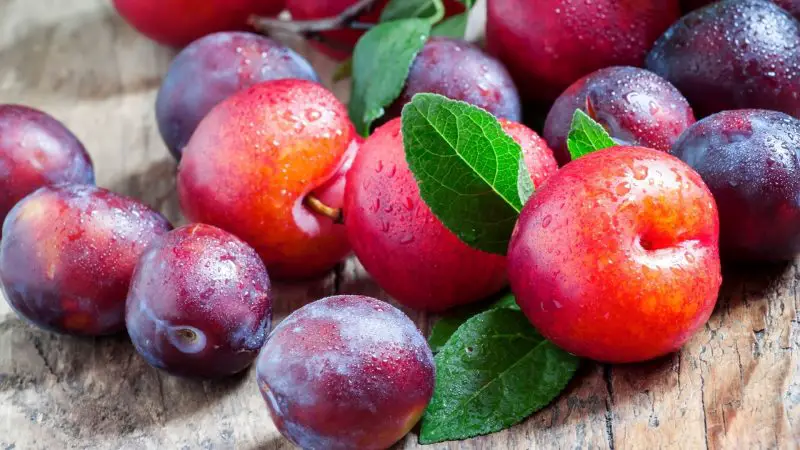
Plums contain many vitamins and health benefits that are good for guinea pigs. They are easily brought to the store, or you can grow them yourself!
Now let’s explore the health benefits that plums can provide to guinea pigs:
- High Amount of Vitamin C: Guinea Pigs don’t produce vitamin C, so they need to get that vitamin from their food. Also, vitamin C helps boost the immune system and helps absorb iron.
- Low in Calories: It’s a delicious fruit but low in calories! It makes your guinea pig happy and healthy!
- Potassium: Helps to maintain good bone strength, giving your guinea pig a good, healthy, and longer life.
- Antioxidant Properties: Contains vitamin C and phytonutrients.
- Maintains a Healthy Nervous System: Vitamin B6 helps transmit nerve signals.
Nutrition Facts of Plums
Plums have a variety of vitamins and minerals. In fact, they have many more than we expect, and all the nutrients help in a different type of health issues. These are the nutrition facts per 1 plum, according to University of Rochester Medical Center Rochester:
- Water (g) – 57.57
- Energy (kcal) – 30.36
- Protein (g) – 0.46
- Fat (g) – 0.18
- Carbohydrate (g) – 7.54
- Fiber (g) – 0.92
- Sugars (g) – 6.55
- Calcium (mg) – 3.96
- Iron (mg) – 0.11
- Magnesium (mg) – 4.62
- Phosphorus (mg) – 10.56
- Vitamin B6 (mg) – 0.02
- Potassium (mg) – 103.62
- Vitamin C (mg) – 6.27
- Vitamin K – 4.22
Here is a video about plum’s health benefits:
Serving Size, Preparation, and Frequency of Plums
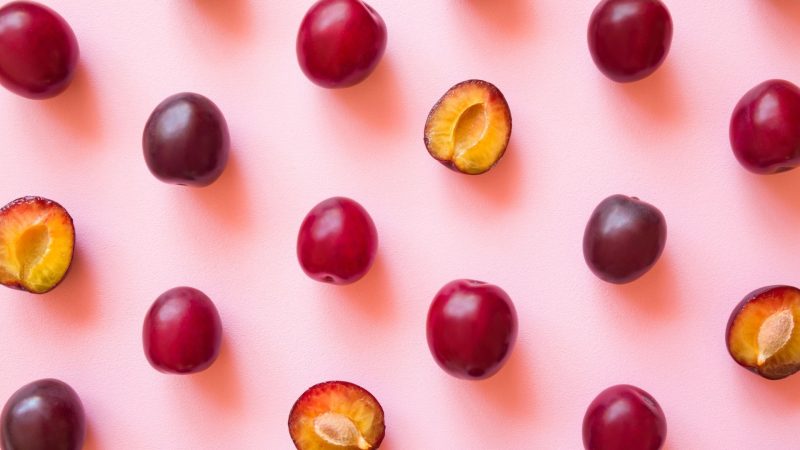
Plums have a lot of good things to give to our little animals. However, let’s not forget that too much can be dangerous with every single food for guinea pigs.
Let’s pay attention to the serving size, preparation, and frequency, so you can give your guinea pig delicious plums but in a safe way. Here are some recommendations:
Serving Size and Frequency
The safe serving size for most fruits in guinea pigs diet is always twice per week. This means you can give one plum to your guinea pig 2 times per week as a treat. This fruit should be chopped into small pieces before giving it to them.
Preparation
The pit of the plum should always be removed, as it contains cyanide and can cause the guinea pig to choke! Plum’s skin should also be kept on – most of the antioxidants are located in the skin!
Why Plums Are Bad For Guinea Pigs? | Possible Risks
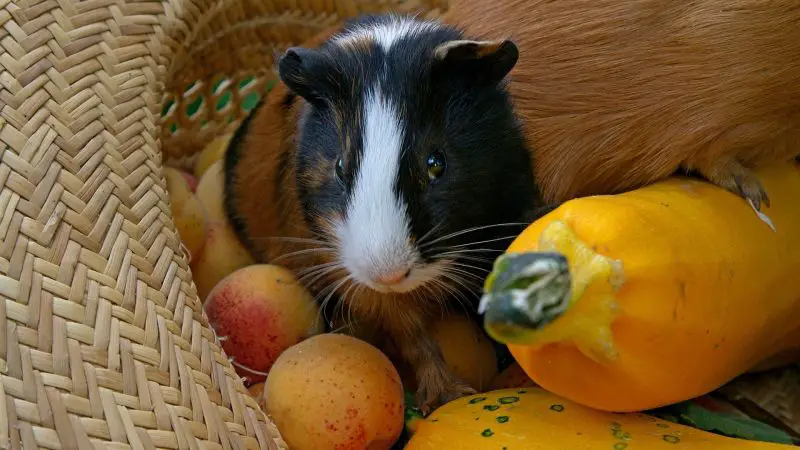
Here are some of the possible risks when guinea pigs consume high amounts of plums:
- Diarrhea: It is very painful, uncomfortable and can lead to major problems for the guinea pigs.
- Stomach Aches: The guinea pig’s digestive system did not evolve to digest fruit well. So when given too much, their system is not strong enough to digest it in a normal and safe way.
- Calcium Oxalate Stones Formation: It is hazardous in this case. As bladder stones are formed, they can lead to your guinea pig’s being in pain all the time, and, in the most severe cases, it can lead to your little friend’s death.
What Happens If Your Guinea Pig Eats a Plum Pit?
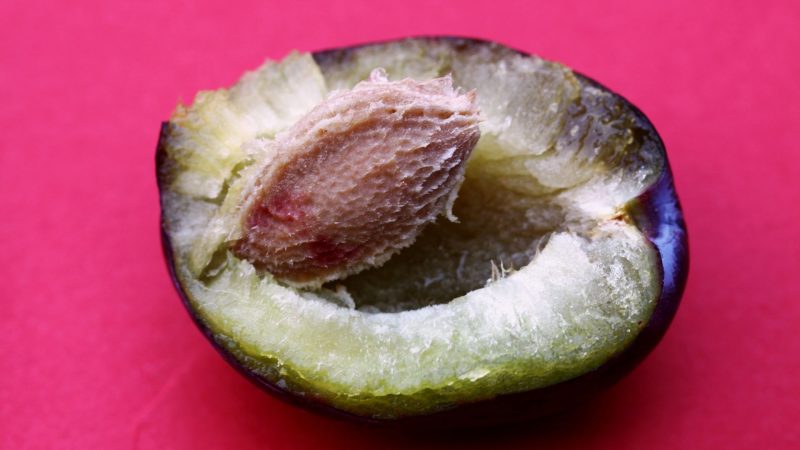
It’s crucial always to take the pit out of the plum before giving it to your guinea pig. The plum pit contains amygdalin. When consumed, this substance releases cyanide and is toxic to humans and animals.
There are two major risks you need to consider if this happens: cyanide poisoning and physical obstruction.
Cyanide Poisoning
Cyanide is a potentially deadly chemical, rapidly acting and found in some foods such as apples, plums, and apricots. It is also contained in cigarette smoke and combustion products of synthetic materials like plastic.
Exposure to cyanide can lead to weakness, rapid breathing, rapid heartbeat, vomit, and dizziness in humans.
On the other hand, guinea pig’s exposure to cyanide can also result in rapid breathing preceded coma and can be life-threatening. Cyanide gas is also used to exterminate pests and vermin.
Physical Obstruction
It can also be called “blocked intestine” or “gastrointestinal obstruction.” This causes extreme pain, discomfort and can lead to a more deadly ending.
If you read both of these risks carefully, you now understand how dangerous and potentially fatal it can be if your guinea pig eats the pit of a plum.
Now, accidents happen, and you should not feel guilty if it happens. Just rush your little guy to the vet, so they can do an x-ray and maybe other tests to determine what treatment is needed.
Frequently Asked Questions
Can Guinea Pigs Eat Prunes?
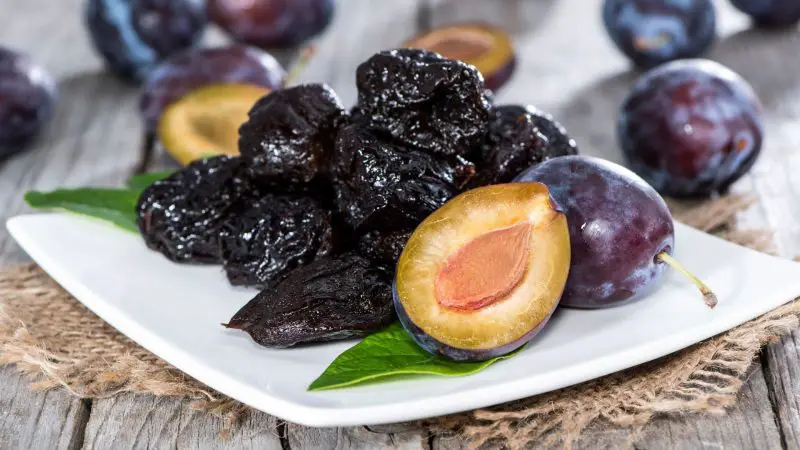
Guinea pigs cannot eat prunes. Prunes are dried plums preserved and can last for a long time. Although it has fiber which is good for digestion, it is also high in sugar that is harmful to guinea pigs.
If consumed by your pet, it can result in diarrhea and other digestive problems.
Can Guinea Pigs Eat Plums Regularly?
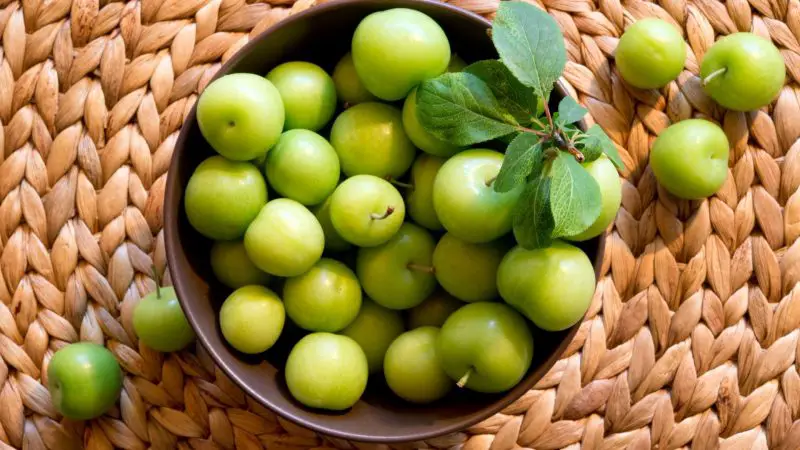
Guinea pigs can eat plums regularly. Note that you can give them 1 plum fruit twice a week only. Daily consumption can contribute to health problems for your pet.
What Other Fruits Can Guinea Pigs Eat?
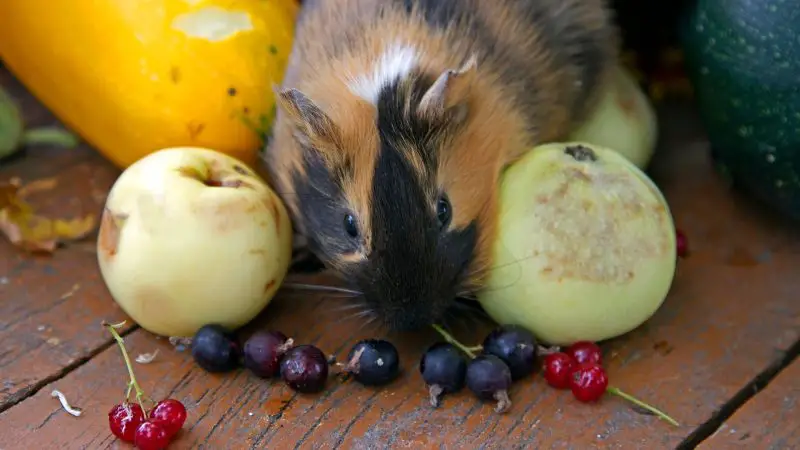
There are many fruits that guinea pigs can eat. These fruits should only be served as a treat, in moderate amounts and at least once or twice a week.
Among these are apples, raspberries, apricots, kiwis, bananas, melons, strawberries, cranberries, blueberries, etc.
Note that not all fruits are good for guinea pigs, so you better research before serving them a fruit.
Quick Facts About Plums
- Plum has several species, between 19 and 40, but only 2 (hexaploid European plum and diploid Japanese plum) are known and of commercial significance worldwide.
- Every continent can grow plum trees, except Antarctica. Plum trees are usually planted in temperate zones.
- Plums include many health benefits. Between them is the relief from anxiety-related problems and indigestion.
- They have antioxidant powers.
- It prevents brain cell breakdown.
- Plums can be cooked and baked.
- The world’s leading producer of plums is China.
- In America, the leading producer is in the state of California.
- Plums can be used in culinary; they can be added to jellies, puddings, and jams.
With food, you should be careful what to choose. If you are not sure what to feed them but believe your little piggies deserve some great treats, check our Helpful Guide to the Best Guinea Pig Treats to get some ideas.
List of Sources
Health Encyclopedia: Nutrition Facts
